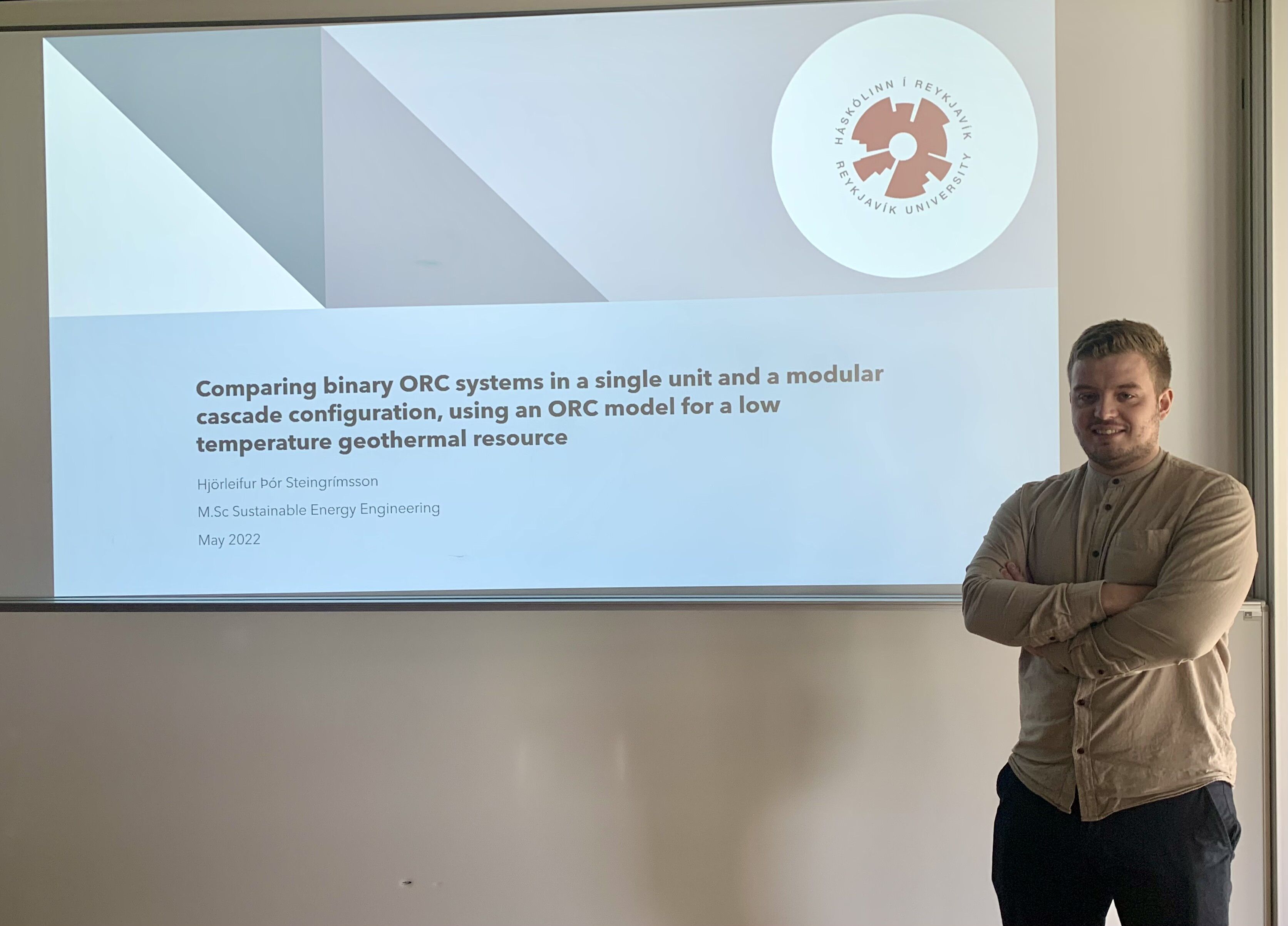MSc Thesis: Comparing binary ORC systems in a single unit and a modular cascade configuration, using an ORC model for a low temperature geothermal resource
REYKJAVIK, May 30 - MSc in Sustainable Energy Engineering candidate, Hjörleifur Þór Steingrímsson, successfully defended his master's thesis where he compares binary ORC systems in a single unit and a modular cascade configuration, using an ORC model for a low temperature geothermal resource. Hjörleifur's work was supervised by Dr. María Sigríður Guðjónsdóttir from Reykjavík University and examination was conducted by Dr. Einar Jón Ásbjörnsson from Reykjavik University.

Hjörleifur starts by highlighting the organic Rankine cycle as the world’s most established technology to produce electricity from low-temperature geothermal sources. In recent years, he says, there have been several companies bringing to market modular small-scale ORC systems. Hjörleifur then goes on to talk about Varmaorka, an Icelandic energy company that develops and operates geothermal power plants in Iceland. Kópsvatn is one of Varmaorka’s power plants, and it uses eight Climeon modular ORC systems to produce power.
He mentions there are four units in a cascaded configuration, where the temperature of the resource fluid is gradually decreased. In his study, a thermodynamic model of an ORC process was made using a thermodynamic library called CoolProp in Python. That model was then used by Hjörleifur to evaluate the performance difference between a single unit ORC system and a modular ORC systems in a cascade configuration. The case study plant used was similar to the Kópsvatn power plant. He then compares a group of working fluids, and uses the model to run performance evaluation for a given exit temperature range. He concludes by showing the modular cascade setup exceeded the single-unit system in terms of power production. However, for some of the working fluids, Hjörleifur mentions the documented performance might not be achievable due to the sub-atmospheric pressures needed to achieve the system conditions.
Congratulations Hjörleifur on an excellent thesis defense!
